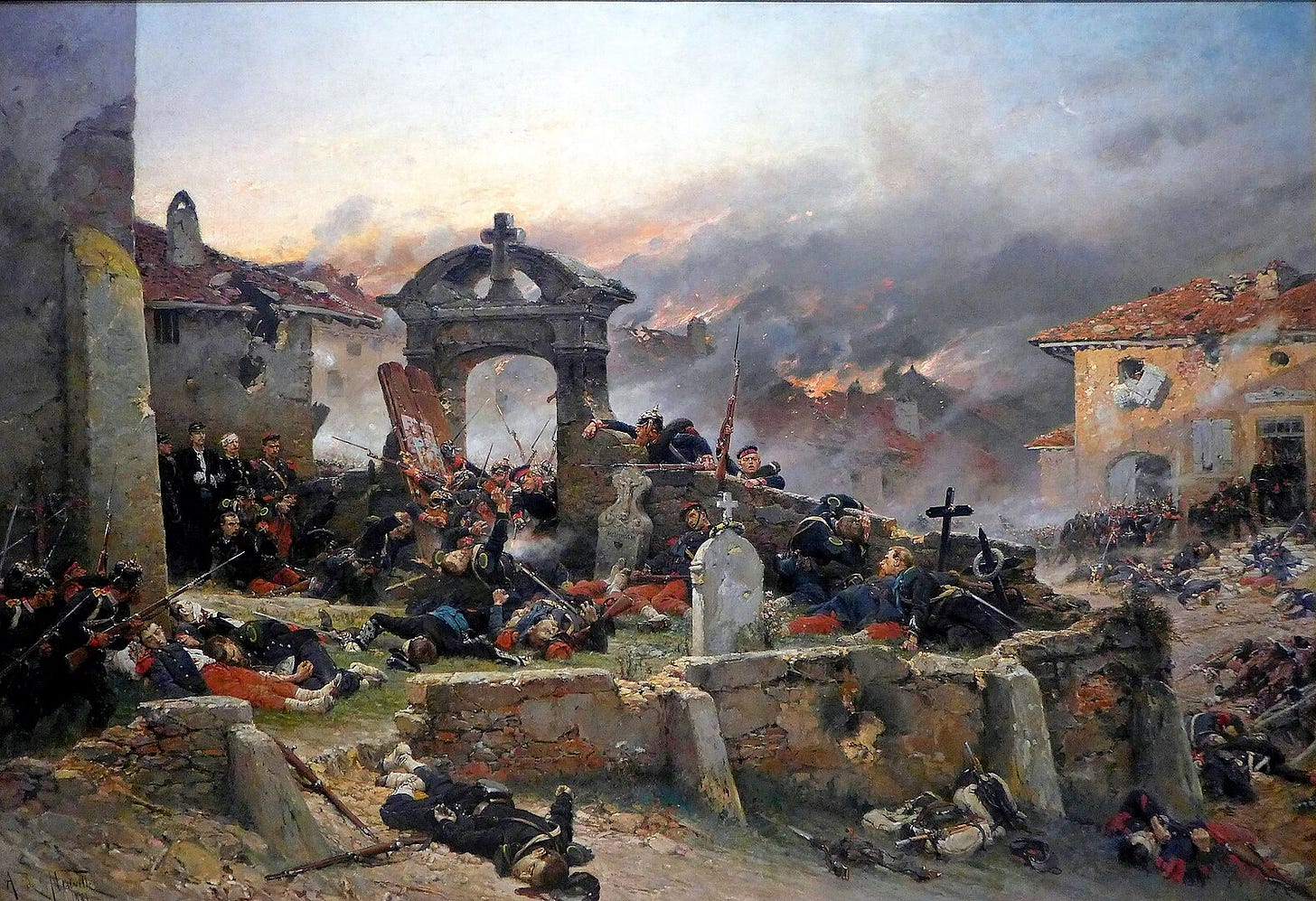World roundup: August 18 2025
Stories from Israel-Palestine, Myanmar, Ukraine, and elsewhere
PROGRAMMING NOTE: As I mentioned last night I am under the weather so tonight’s roundup is a bit shorter than usual and there is once again no voiceover. Those who need it may avail themselves of the text-to-voice option in the Substack app until I am feeling better. Thanks for your patience.
TODAY IN HISTORY
August 18, 684 (or thereabouts): Simmering tribal rivalries within the Arab caliphate erupt into conflict at the Battle of Marj Rahit near Damascus, one of the key engagements of the caliphate’s second great civil war or “fitna.” The army supporting Umayyad Caliph Marwan I and consisting primarily of “southern” Arab tribal forces defeated a probably-larger force comprised of “northern” tribes that had thrown their support behind rival caliphal claimant Abdullah ibn al-Zubayr. Marwan’s victory stabilized his previously tenuous hold on Syria, and though he died shortly after his son and successor, Abd al-Malik, was then able to defeat ibn al-Zubayr and end the civil war.
August 18, 1487: The garrison defending the Granadan city of Málaga surrenders, ending a Castilian-Aragonese siege that had lasted over three months. Málaga was the Emirate of Granada’s second-largest city and its largest seaport, so losing it to the Catholic monarchs was a massive defeat—one from which, it turned out, the emirate would never recover. Frustrated by the city’s refusal to surrender—even after its leaders capitulated on August 13, the garrison held out for almost another week—King Ferdinand II of Aragon either executed or enslaved most of its remaining population.
August 18, 1870: The French Army of the Rhine meets the Prussian First and Second armies under the command of King Wilhelm I at the Battle of Gravelotte in Lorraine. Tactically the battle was inconclusive—the Prussians outmaneuvered the French but the French were able to retreat in good order to Metz, and casualties were pretty even relative to the numerical disparity (the Prussians outnumbered the French by about 70,000 soldiers) between the two armies. But the Prussians were then able to besiege the French army at Metz, eventually emerging victorious in one of the most decisive engagements of the Franco-Prussian War.

MIDDLE EAST
SYRIA
What Reuters is calling Syria’s “worst drought in 36 years” has the country’s nascent government scrambling to import enough food to avoid a major crisis. The United Nations estimates that Syria is facing a “shortfall of 2.73 million metric tons” of wheat and with domestic production down Syrian officials are reportedly trying to source at least 2.55 million metric tons on the international market to little success thus far. Most of that failure seems to be attributable to slow movement by the government, which given how new it is and how many domestic crises it’s managing may simply not be up to this task. The UN estimates that around half of Syria’s ~25 million population is in some state of food insecurity and has warned that some 3 million people could face “severe hunger” without a remedy to this situation.


